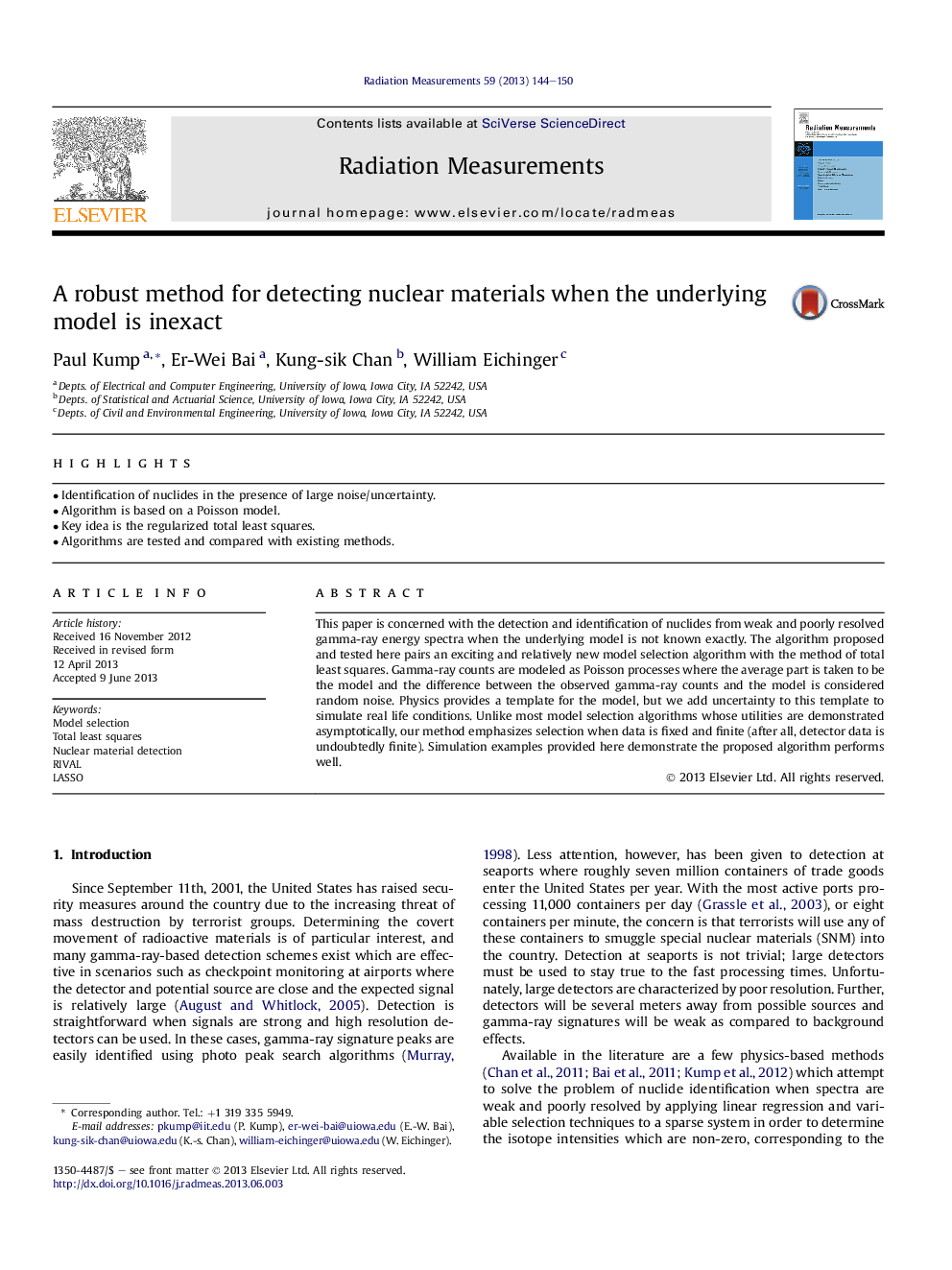| Article ID | Journal | Published Year | Pages | File Type |
|---|---|---|---|---|
| 1888258 | Radiation Measurements | 2013 | 7 Pages |
•Identification of nuclides in the presence of large noise/uncertainty.•Algorithm is based on a Poisson model.•Key idea is the regularized total least squares.•Algorithms are tested and compared with existing methods.
This paper is concerned with the detection and identification of nuclides from weak and poorly resolved gamma-ray energy spectra when the underlying model is not known exactly. The algorithm proposed and tested here pairs an exciting and relatively new model selection algorithm with the method of total least squares. Gamma-ray counts are modeled as Poisson processes where the average part is taken to be the model and the difference between the observed gamma-ray counts and the model is considered random noise. Physics provides a template for the model, but we add uncertainty to this template to simulate real life conditions. Unlike most model selection algorithms whose utilities are demonstrated asymptotically, our method emphasizes selection when data is fixed and finite (after all, detector data is undoubtedly finite). Simulation examples provided here demonstrate the proposed algorithm performs well.
